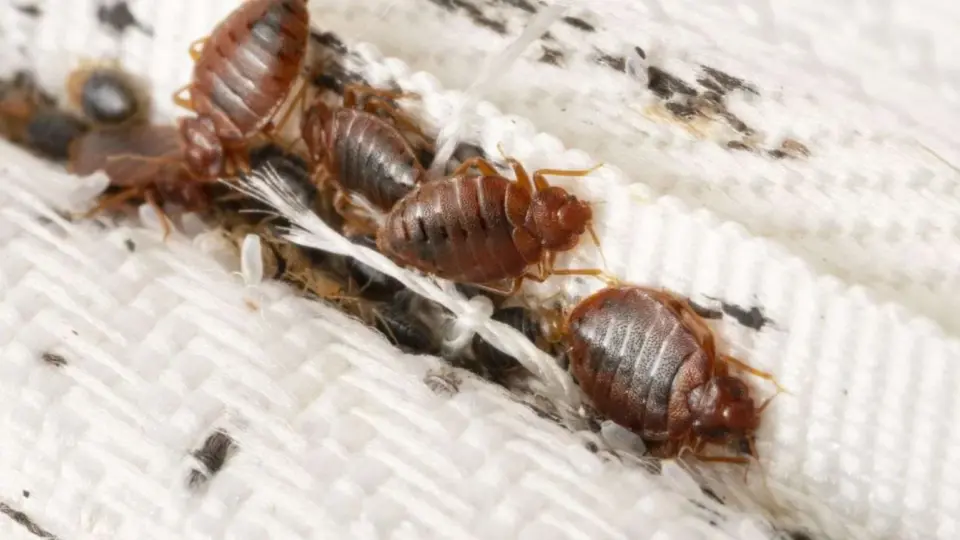
Bed bugs can significantly disrupt your sleep and negatively affect your mental health, making quick removal essential. These nocturnal pests often feed on human blood while their hosts sleep, leading to itchy bites and discomfort that can cause insomnia or restless nights.
The anxiety and stress of knowing that bed bugs are present can create a heightened sense of vigilance, making it difficult to relax and enjoy restful sleep. This constant worry can lead to increased irritability, depression, and overall diminished well-being.
Therefore, promptly addressing a bed bug infestation helps restore a peaceful sleeping environment and alleviates the associated mental health challenges, allowing individuals to regain their sense of security and comfort in their homes.
How do bed bugs affect sleep quality and restfulness?
Bed bugs can severely impact sleep quality and restfulness in several ways:
- Discomfort from Bites: Bed bug bites can cause itchy, red welts on the skin. The discomfort and irritation can lead to frequent awakenings at night, making it difficult to maintain uninterrupted sleep.
- Increased Anxiety: The presence of bed bugs can lead to heightened anxiety and stress. Worrying about being bitten can keep individuals on edge, leading to difficulty falling asleep and achieving deep, restorative sleep.
- Sleep Disruption: Bed bugs are nocturnal and tend to feed while their hosts are asleep. This can cause individuals to wake up suddenly as the bugs bite, disrupting the natural sleep cycle and reducing overall sleep quality.
- Fear of Infestation: The knowledge that bed bugs are in the environment can create a sense of fear and paranoia, making it hard for individuals to relax enough to fall asleep. This fear can lead to a cycle of sleeplessness and increased stress.
- Physical Reactions: Some people may have allergic reactions to bed bug bites, resulting in more severe sleep symptoms, such as swelling and increased itchiness.
Bed bugs can create an unhealthy sleep environment, leading to sleep deprivation and negatively affecting physical and mental well-being. Addressing an infestation quickly is crucial to restoring restful sleep.
What are the psychological effects of a bed bug infestation?
A bed bug infestation can have significant psychological effects on individuals, impacting their mental health and overall well-being in various ways:
- Anxiety and Fear: Knowing that bed bugs exist can induce feelings of anxiety and fear. People may become hyper-vigilant about their surroundings, worrying about being bitten or infested again, leading to constant stress.
- Sleep Disturbances: Bed bugs are nocturnal pests that feed during the night, so their presence can disrupt sleep patterns. Lack of sleep due to fear of bites or discomfort from itching can exacerbate anxiety and lead to further mental health issues.
- Depression: The ongoing stress and anxiety associated with an infestation can contribute to feelings of helplessness and hopelessness, potentially leading to depression. The emotional toll of dealing with a bed bug problem can be overwhelming for some individuals.
- Social Withdrawal: Individuals may avoid inviting friends or family due to embarrassment or shame about the infestation. This social withdrawal can lead to feelings of isolation and loneliness, further impacting mental health.
- Body Image Issues: Visible bites or scarring from bed bug bites can lead to self-consciousness and body image concerns, particularly if the bites are on exposed areas of the skin.
- Paranoia: Dealing with an infestation can lead to increased paranoia about cleanliness and hygiene. Individuals may become obsessed with excessively checking for bugs and cleaning their living spaces.
- Stress-related Health Issues: The psychological stress caused by a bed bug infestation can manifest in physical symptoms, such as headaches, gastrointestinal issues, or worsening of pre-existing conditions.
The psychological effects of a bed bug infestation can be profound and long-lasting, affecting not only the individual’s mental health but also their daily functioning and quality of life. Seeking prompt treatment for the infestation and professional support for mental health concerns is crucial for recovery.
Why is immediate removal important for preventing long-term stress from bed bugs?
Immediate removal of bed bugs is crucial for preventing long-term stress for several reasons:
- Reduction of Anxiety: The knowledge that bed bugs are present can lead to heightened anxiety and fear. Prompt removal alleviates this stressor, allowing individuals to regain a sense of safety and comfort in their environment.
- Improved Sleep Quality: Bed bugs are nocturnal pests that feed on humans at night, leading to sleep disturbances. Quick removal helps restore a peaceful sleeping environment, essential for overall well-being and mental health.
- Prevention of Escalation: Bed bug infestations can multiply rapidly. Immediate action prevents the problem from worsening, reducing the likelihood of a more extensive and challenging infestation, which can lead to increased stress and frustration.
- Less Disruption to Daily Life: Dealing with an infestation can disrupt daily routines and lead to significant lifestyle changes, such as avoiding certain areas of the home. Fast removal minimizes this disruption, allowing individuals to return to normal lives sooner.
- Avoidance of Financial Burdens: Prolonged infestations can lead to higher treatment costs, extensive repairs, and the need to replace infested belongings. Quick removal can mitigate these financial burdens and the stress they bring.
- Reduction of Social Isolation: People often feel embarrassed about having bed bugs and may withdraw from social interactions. Fast removal allows individuals to feel more comfortable inviting friends and family over, fostering important social connections for mental health.
- Mitigation of Long-term Psychological Effects: Prolonged exposure to the stress of an infestation can lead to long-term psychological issues, such as chronic anxiety or depression. Quick removal helps break this cycle, supporting mental well-being and resilience.
Immediate removal of bed bugs is essential for physical comfort, protecting mental health, reducing anxiety, and restoring normalcy in daily life. Taking swift action can prevent the long-term stress and emotional toll a bed bug infestation can impose.
How does living with bed bugs impact mental health over time?
Living with bed bugs can have a profound and lasting impact on mental health over time. Here are several ways in which an infestation can affect psychological well-being:
- Chronic Anxiety: The presence of bed bugs can create ongoing anxiety and stress. Individuals may constantly worry about being bitten, leading to hyper-vigilance and an inability to relax. This chronic state of anxiety can exacerbate existing mental health conditions or contribute to new ones.
- Sleep Disturbances: Bed bugs feed during the night, leading to discomfort and disrupted sleep patterns. Poor sleep quality can result in fatigue, irritability, and decreased cognitive function, further impacting mental health.
- Depression: The stress and frustration of dealing with an infestation can lead to feelings of helplessness and hopelessness, potentially resulting in depression. Individuals may withdraw from activities they once enjoyed and experience a lack of motivation.
- Social Isolation: Embarrassment about having bed bugs can lead to social withdrawal. People may avoid inviting friends or family over, resulting in feelings of loneliness and isolation, which can negatively impact mental health.
- Paranoia and Obsessive Behaviors: Living with bed bugs can lead to increased paranoia about cleanliness and hygiene. Individuals may become obsessed with checking for bugs or cleaning their living spaces excessively, which can interfere with daily functioning.
- Body Image Issues: Visible bites or scarring from bed bug bites can lead to self-consciousness and negative body image. This concern can affect social interactions and self-esteem.
- Post-Traumatic Stress: For some individuals, the experience of dealing with a severe infestation can lead to symptoms similar to post-traumatic stress disorder (PTSD), such as flashbacks or heightened anxiety when encountering situations reminiscent of the infestation.
- Coping Mechanisms: Individuals may resort to unhealthy coping mechanisms, such as substance abuse, to manage the stress associated with living with bed bugs. This can lead to further mental health issues and complicate recovery.
The mental health effects of living with bed bugs can be significant and long-lasting. Seeking prompt treatment for the infestation, as well as support for any psychological impacts is crucial for restoring well-being and preventing the development of chronic mental health issues.
Eliminate Bed Bugs for Better Sleep Today!
At Freedom Pest Services, we understand the profound impact bed bugs can have on your sleep and mental health. These pests not only disrupt your restful nights but can also lead to increased anxiety and stress. That’s why immediate removal is essential.
Our experienced team uses effective, eco-friendly treatments to eliminate bed bugs swiftly and safely, ensuring your home returns to a comfortable and peaceful environment. Don’t let bed bugs compromise your well-being any longer.
Contact Freedom Pest Services today for a thorough inspection and prompt removal, and reclaim your sleep and peace of mind!
